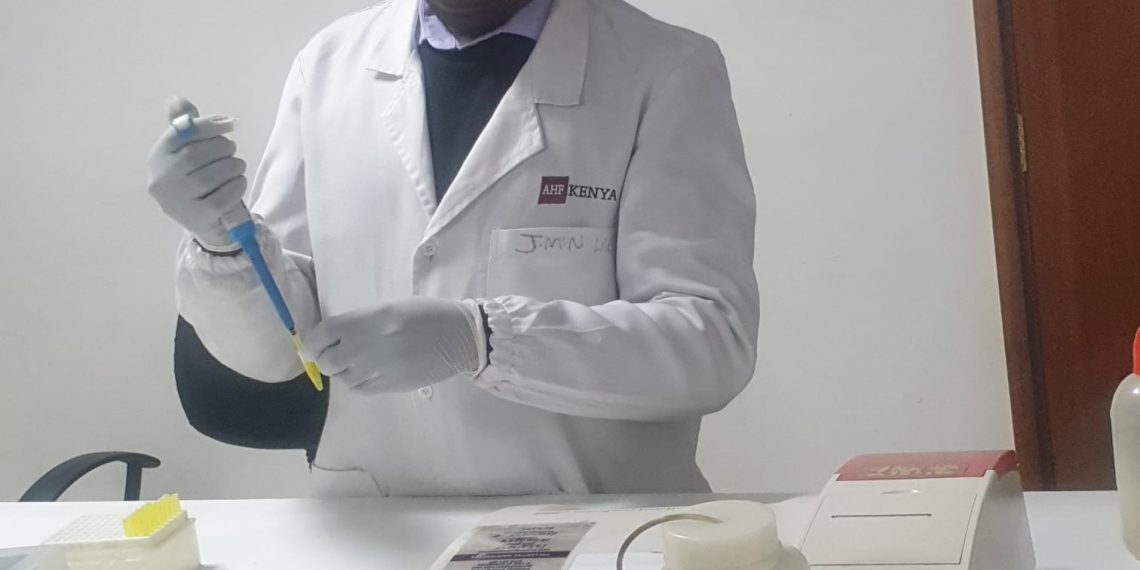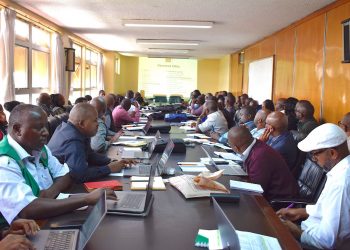In a significant step towards enhancing public health, AHF Kenya has unveiled a new wellness clinic in Nairobi. The facility aims to provide comprehensive care services, building on its established reputation for offering free HIV testing, counseling, and pharmacy services.
The new clinic will also offer Pre-Exposure Prophylaxis (PreP), post-exposure prophylaxis (PEP), free condoms, and a range of services for sexually transmitted infections (STIs), including free testing and treatment. This initiative underscores AHF Kenya’s commitment to expanding healthcare access, particularly for those in vulnerable communities, as it celebrates touching 2 million lives globally.
According to Omari Wilfred, clinical officer in charge of the Mathare clinic, AHF Kenya’s Juja Road-based facility in Nairobi, one of the country’s largest providers of free HIV/AIDS treatment and care, is now expanding its services.
“The facility will offer free outpatient services and voluntary, confidential testing, diagnosis, and counseling for sexually transmitted infections (STIs) to improve screening rates,” he said.
He added that “We have been experiencing a high number of STI and STD cases in our facility. We also realized that many of our clients opted for over-the-counter medications to treat their syndromic symptoms, and the majority were unable to afford a full dose of their medication. The STI testing laboratory was therefore introduced to better manage STIs and STDs. For a long time, we saw many patients developing resistance due to the overuse, misuse, or underuse of over-the-counter antibiotic medications.”
“The facility sees over 40 STI/STD cases per month. Early testing and diagnosis are key to stopping the spread of STIs, and the lab has helped in recording better prognoses. If left untreated, certain STIs can lead to long-term, irreversible outcomes, and some can be potentially fatal,” he observed.
He explained that the Juja road clinic will be offering free urinalysis to test urine for infections related to urinary tract infections, VDRL to test syphilis and PCR tests to test more STIs with clinicians also examining medical history to help make proper STIs diagnosis.
He explains that Nairobi’s Juja road facility has been experiencing high number of STI cases partly because of their catchment area which mostly targets clients from Mathare, Korogocho, Kiambiu, parts of Ruaraka and Shauri Moyo slums and also considering that the services are offered free of charge.
According to World Health Organization (WHO) more than 1 million curable STIs are acquired every day. More than 30 different bacteria, viruses and parasites are known to be transmitted through sexual contact, including vaginal, anal and oral sex. Some STIs can also be transmitted from mother-to-child during pregnancy, childbirth and breastfeeding. Eight pathogens are linked to the greatest incidence of STIs. Of these, 4 are currently curable: syphilis, gonorrhoea, chlamydia and trichomoniasis. The other 4 are viral infections: hepatitis B, herpes simplex virus (HSV), HIV and human papillomavirus (HPV).
In addition, emerging outbreaks of new infections that can be acquired by sexual contact such as mpox, Shigella sonnei, Neisseria meningitidis, Ebola and Zika, as well as re-emergence of neglected STIs such as lymphogranuloma venereum.
Omari explained that the burden of sexually transmitted infections (STIs) has been increasing in Kenya, as is the case elsewhere in sub-Saharan Africa, while measures for control and prevention are weak adding that Services to prevent, diagnose and treat sexually transmitted infections are not being delivered at the appropriate scale to impact on transmission patterns.
“Most of patients we see use the syndromic approach for STI management because STIs are associated with Stigma which stems from the societal intertwining of STIs with moral behavior therefore most patients tend to develop a poor health seeking behavior, denial or minimizing of STI symptoms and consequently delayed treatment, low contact reporting, and further transmission.”
He advises sexually active individuals to seek testing for HIV and STIs (sexually transmitted infections) at least once a year. However, factors such as age and number of sexual partners he observes as a key factor to inform how often one should get tested.
Omari spoke to journalists at AIDS Healthcare Foundation (AHF) Kenya event meant to commemorate a momentous achievement in its mission to provide cutting-edge medicine and advocacy regardless of ability to pay impacting 2 million lives in AHF’s care worldwide – the commemoration was held at AHF Mathare Clinic on Juja Road.
The commemoration also took place at the Muranga County Referral Hospital in Muranga; Mtongwe District Hospital in Mombasa; Rachuonyo Subcounty District Hospital in Kasipul-Homabay, Kisii County Referral Hospital and Emali Subcounty Hospital.
He added that associated sequelae of STIs include fetal and neonatal deaths, cervical cancer, infertility, increased risk of HIV, and low self-esteem.
According to AHF-Kenya Country Director Dr. Samuel Kinyanjui since its inception in 1987, AHF has been at the forefront of the global fight against HIV/AIDS, delivering essential services, advocacy, and innovative solutions to combat the pandemic. This significant milestone underscores AHF’s unwavering commitment to improving the lives of those affected by HIV/AIDS.
“AHF is a phenomenal organization growing from less than 100,000 patients worldwide since 2002 to 2 million Clients in care. We are phenomenal due to our focus on the wellness of our clients guided by our mission statement of cutting-edge medicine and advocacy regardless of ability to pay; our focus not only on HIV/AIDS but other diseases such as TB and STIs; our unique flexible self-funding model and the culture of our staff and ability to network with other stakeholders,” Said Kinyanjui.
With clinics and facilities spanning 47 countries worldwide in Africa, Asia, the Americas, and Europe, AHF continues to leverage innovative healthcare delivery models to expand its reach and impact. It reaches communities in need by providing comprehensive medical care, treatment, testing, prevention, and support services.
AHF Kenya also implements effective HIV prevention programs by raising awareness of the population, distributing free condoms, providing rapid testing and treating HIV and other opportunistic infections such as Tuberculosis (TB).
“As AHF continues its fight against the HIV/AIDS pandemic, the organization remains steadfast in its commitment to advocating for access to HIV treatment and care for everyone who needs it and holding Big Pharma and decisionmakers accountable.”















